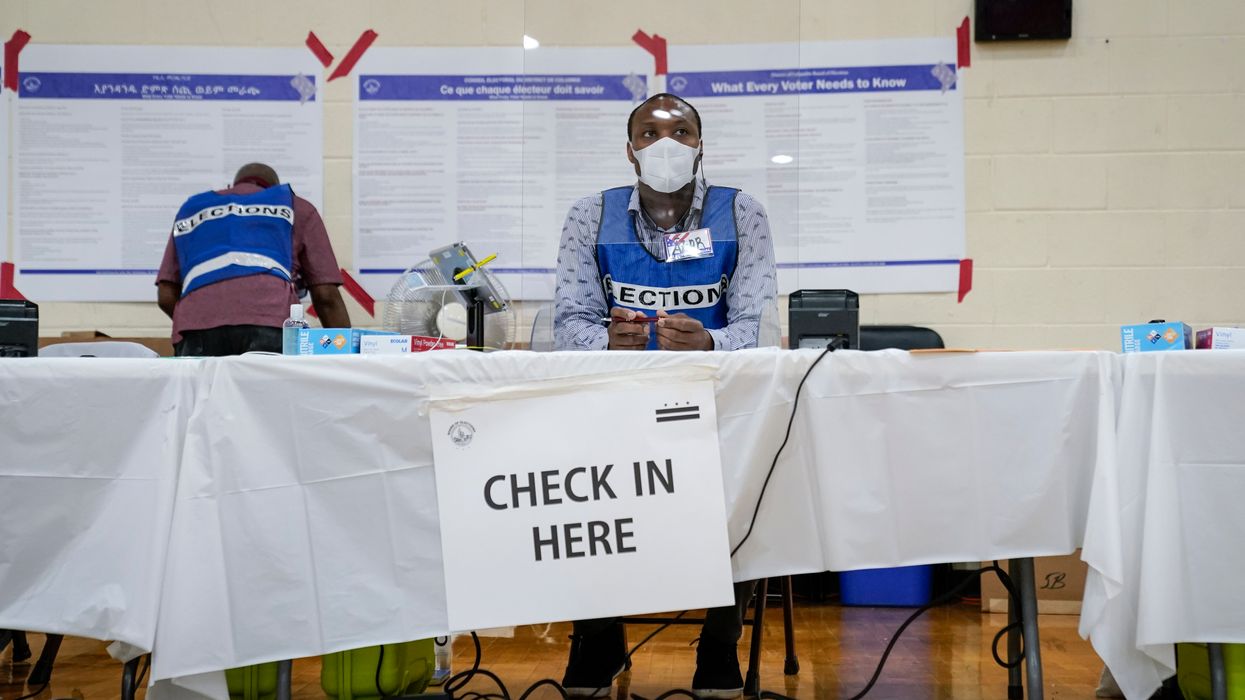Petrow-Cohen and Deal are on the staff of the Leadership Now Project, a membership group of mostly business leaders that invests in nonprofits and candidates that "advance a modern, effective democracy."
This is shaping up to be an election year with unprecedented challenges and high potential for chaos. Voting by mail is under fire from the Trump administration, the coronavirus pandemic has created a shortage of poll workers, and the Postal Service has sounded an alarm about its ability to handle a surge in ballot envelopes.
Defending the right to vote, which is the core of a strong democracy, is defending democracy itself. That's why our organization is working to mobilize the business community behind a plan to address these crises through a team called the Election Support Corps — a collection of business school students and people with an MBA ready to spend the next months supporting efforts to ensure the success of the election.
The corps was created this spring by a group of Leadership Now members across the country who were concerned about the security of our elections because of Covid-19. With democracy under fire, the effort has since expanded to 12 full-time staffers across eight states, and the team continues to grow rapidly.
Vote-by-mail is both secure and popular, as Amber McReynolds, founder of the National Vote at Home Institute, explains. Our own polling has found two-thirds of senior business executives support it. Nevertheless, our report this summer on election disinformation tells the story of targeted, well-funded campaigns aimed at undermining vote-by-mail in key states. Combined with a shortage of poll workers because of the virus, our election system is underprepared and vulnerable to chaos akin to what we saw in the Iowa caucuses as the year began.
Undoubtedly, this challenge is too big and too important for one organization to tackle on its own. Leadership Now has partnered with Vote at Home, Power the Polls, Protect Democracy, March to the Polls, and Students Learn Students Vote to achieve a set of lofty but essential goals related to election support. We can make progress by working together, sharing best practices and leveraging each organization's unique expertise.
The corps is now focused on three areas we believe will have the biggest impact on the elections in November.
The first is providing operational support to county election officials. By working with Vote at Home, our team has already placed MBA students and graduates in high-priority locations including Georgia, Pennsylvania, Wisconsin, Texas, New York and Washington, D.C., and we will place more of them in states where election officials have expressed need for support.
By leveraging tools our team created, they will help election administrators plan for mail-in ballots and in-person voting, and provide communications. This on-the-ground support is a key component of our effort.
The second is recruiting poll workers through university and corporate networks. Because three in five election workers are older than 60, and therefore at higher risk of Covid-19 complications, many are not serving this year and the resulting shortage is among the most critical challenges to the election.
In partnership with Power the Polls, an organization that directs users to the information necessary to register as a poll worker in their state, the corps is working to find young and healthy poll workers for counties with the most need. By partnering with other constituency groups such as Students Learn Students Vote and March to the Polls, corps has dramatically increased its impact. Stunningly, Power the Polls was able to register 80,000 poll workers in just one week this month — almost a third of the way to our 250,000 recruiting goal.
Finally, we are combatting disinformation and responding to election crises. Our disinformation report identified campaigns attempting to undermine the integrity of our elections and democracy more broadly. Given the number of confounding factors contributing to the spread of disinformation, we are also working with Protect Democracy on coordinated responses to all potential election scenarios. The Transition Integrity Project recently released a report laying out critical risks to this election, such as delayed or contested results. Countering disinformation and ensuring trust in our election system are critical to mitigating these risks.
Our partnerships with these groups is crucial to the success of our MBA corps. Tapping into their expertise, resources and strategies has been integral to creating a well-rounded and impactful program. As is too often forgotten, we can achieve much more together than we can alone. And at this moment of crisis, democracy requires all hands on deck.



















Marco Rubio is the only adult left in the room